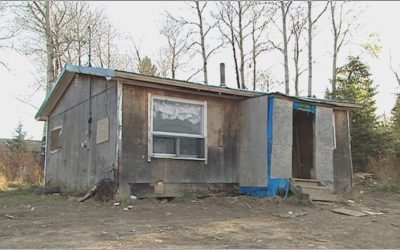The Standing Senate Committee on Aboriginal Peoples has just wrapped up meetings in Winnipeg with an eye towards improving band council elections.
Let’s hope they listen to grassroots voices and do the right thing.
Over the years, I have attended several parliamentary committee hearings designed to improve different aspects of Aboriginal governance.
While I am encouraged that this issue is even being looked at, I am worried these hearings will become stacked with band council chiefs and Aboriginal organizations and that average band members will be ignored. I am worried this committee will succumb to political correctness and non-innovative thinking as I’ve seen before. In 2007, the same committee released a report on Aboriginal economic development and the barriers to prosperity. Given the hopeful title, Sharing Canada’s Prosperity – A Hand Up, Not a Handout, the study seemed to be moving in the right direction. The report, however, under the direction of Sen. Gerry St. German, barely mentioned the role of private property in prosperity and seemed to be another politically correct plan for more costly economic development schemes that never work.
Needless to say, the report generated a yawn and was largely forgotten.
The other challenge is in hearing from voices not usually heard, as parliamentary hearings are usually titled towards voices and organizations that possess deep pockets and organizational strength. Grassroots band members are not as organized or wealthy as band leaders, but they are the ones most affected by band-level corruption.
In a recent story in the Drum, it was reported that one woman by the name of Jean Courchene attended the Winnipeg hearings after only hearing about them the last minute. With one three dollars to her name, the 61-year-old woman from Fairford First Nation drove all the way to the hearings. Usually, chief and council are well-advised of these meetings in advance and have the money to attend.
Courchene was worried that too many voices will be heard other than the people on reserves who are most affected by the issue. I share her concern.
The issue before the committee is an important one. It is looking at the issue of whether to move from a four-year election term for elected chiefs and councillors, rather than the two-year Indian Act system. With most First Nations opting for the Indian Act system rather than custom elections, this is an issue impacting many indigenous communities.
Evidence points to the desirability of a four-year system.
In 2003, the Harvard Project on American Indian Economic Development was the first major study to look at what defines good tribal governance. Looking at many American indigenous governments, the authors discovered certain patterns of good governance. Although First Nations in Canada operate under different laws, many observations can be applied here. The researchers identified two types of indigenous governance systems: ones that worked and ones that did not. The ones that succeeded were achieving prosperity and showed signs of strategic direction. One finding they made was that short terms of elected office were holding indigenous communities back from success. Many tribal governments operated on a two-year system and as a result, few politicians were given incentives to think about long-term strategies. The shorter terms also prevented any long term vision for real governance reform.
The problem was they faced re-election long before any strategies could start to show results. With only two years to produce results before going back to election mode, indigenous politicians were more focused on starting as many businesses as possible and creating more short-term make work projects, instead of staying around to nurture and ensure they succeed. The researchers said that two-year terms produced a disproportionate focus on grand openings, ribbon cutting and new start-ups. The politicians were always looking for ways to be noticed by the electorate and to receive the glitzy photo-ops. If they are seen as not doing anything, they would not get re-elected. Also, heaven forbid they develop a business initiative begun by a previous politician in a past term.
The Senate committee is also looking at the idea of fixed band elections dates. The reason for this is the same reason non-indigenous communities are interested in them: they take power away from politicians to decide when to call elections, which is often done to suit their partisan needs, not the needs of the electorate.
This is a change that should receive serious consideration. The committee should not merely listen to the Ron Evans types who have an interest in keeping the system they way it is.
One hopeful signs is that Senator Patrick Brazeau, former head of the Congress of Aboriginal Peoples (CAP), is sitting on this committee. As CAP head, Brazeau was outspoken in criticizing band –level corruption. Let’s hope he is a bold voice during the hearings for election reform drowning out status quo thinkers like Gerry St. Germain.
This is a significant opportunity to speak truth to power. These committee members must rise to the occasion.
This piece originally appeared in the First Perspective newspaper in its June 9, 2009 edition.


